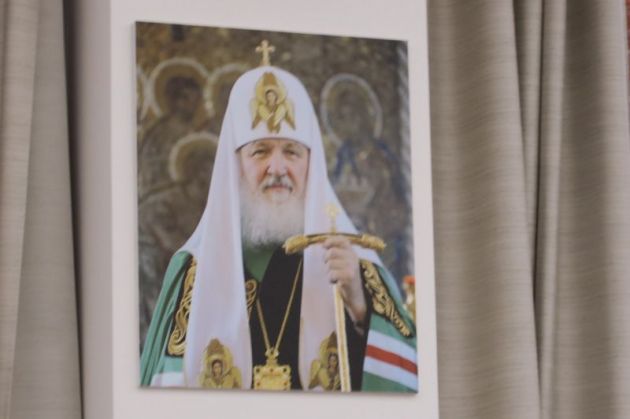Russian Evangelical Alliance head sends open letter grieving invasion of Ukraine, prays for forgiveness

The head of the Russian Evangelical Alliance has put to shame the pro-Putin Moscow patriarch of the Orthodox Church and says he mourns what his country has done in its recent military invasion of "another sovereign country," Ukraine.
The World Evangelical Alliance said on March 14 it received a letter from Rev. Vitaly Vlasenko, who heads the Russian Evangelical Alliance, one of WEA's 143 national member bodies.
Vlasenko requested the letter be shared with WEA's worldwide constituency of hundreds of millions of Christians.
"For me, as for many other Christians, the military invasion was a shock. In the worst-case scenario, I could not imagine what is now being observed in Ukraine," writes Vlasenko.
"Two peoples closely related to each other, many of whom are deeply devoted to the Christian (primarily Orthodox) faith, are now in a fierce battle—one side pursuing the goal of demilitarizing Ukraine, the other seeking to save their country from occupation."
CLOSE FAMILY RELATIONS
Vlasenko notes that many Russians and Ukrainians have close family relations in the opposite country.
"A Russian may have daughters and grandchildren living in Kyiv; a Ukrainian may have children living and working in Moscow," he says.
"Today, pain, fear, and deep sorrow for their loved ones and for the future of their own lives and countries, pierce the hearts of many people like lightning because, since the Second World War, no one knows what the limits of war and its consequences may be."
Vlasenko observes that now soldiers from each side are dying.
In South Africa's Daily Maverick newspaper, Drew Forrest wrote on Feb. 13, "The Russian Orthodox Church has played a major role in the rise of Russian militarism and in smoothing the way for Vladimir Putin's invasion of Ukraine."
In a letter on March 10, Moscow Patriarch Kirill skirted a plea by the general secretary of the World Council of Churches, Rev. Ioan Sauca, a Romanian Orthodox, to mediate to stop the war in Ukraine.
Kirill said the origins of the confrontation in Ukraine lie in the relationships between the West and Russia, and it has become part of a strategy to weaken his country.
"This tragic conflict has become a part of the large-scale geopolitical strategy aimed, first and foremost, at weakening Russia," wrote Kirill without mentioning anything of the attempts by Russian forces to destroy Ukrainian cities driving out the people who live in them.
"In a country where up to three-quarters of the citizens count themselves Orthodox Christians, Putin's partnership with the church is partly about securing his power and legitimacy," Forrest wrote.
BOMBING AND SHELLING
Vlasenko writes in his letter, "Peaceful feelings are being destroyed amidst the bombing and shelling, and a stream of increased attention has rushed across Europe in the form of refugees: women, the elderly, and children."
The Russian Evangelical Alliance provided humanitarian assistance to more than 500 refugees from Ukraine stationed in southern Russia.
The alliance initiated a roundtable and a subsequent international conference on military and political conflicts.
"Today, as a citizen and as General Secretary of the Russian Evangelical Alliance, I apologize to all those who have suffered, lost loved ones and relatives, or lost their place of residence as a result of this military conflict," says Vlasenko.
"My prayer is that you will find strength from the Lord to extend your hand of solidarity and forgiveness so that we can live as the people of God to our world."